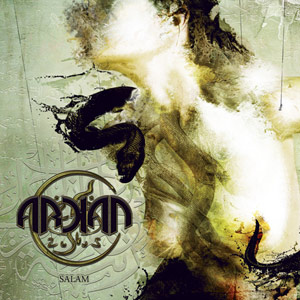
Salam
Season of Mist
Arkan is a Parisian death metal band that laces their sound with traditional Middle Eastern/Arabian acoustic folk passages and instrumentation, and while I’m no World Cafe buff, I will attempt to tell y’all what the band has going on with their newest album, Salam. The standout feature is their mix of growly vocals alongside the female singing of Sarah Layssac. Layssac’s vocals lend a particularly gothic element to Arkan’s sound that might not otherwise be there and presents yet another attractively enriching element to Salam to snare a potential listener’s attention. In a way, Arkan come off as a cross between Lacuna Coil and Nile, two disparate metal entities that somehow when mixed together work way better than one may imagine. I recommend this record highly.
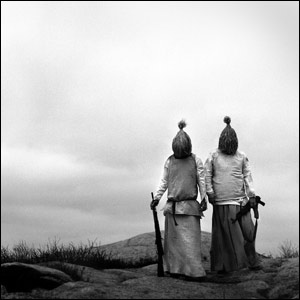
All the Waters of the Earth Turn to Blood
At a Loss
This album originally came out a year ago, but as I never got around to hearing it then and the vinyl reissue has come out recently, it’s a good time to check out The Body and their magnum opus, All the Waters of the Earth Turn to Blood. I must say the hype the album received is justified as All the Waters is very impressive, not merely as a metal record, but as a goddamned work of art. The Body’s sound is based around the heavy noise of drummer Lee Buford and guitarist Chip King, and All the Waters is enhanced by the addition of choirs, chanting, vocal samples, keyboards, brass, and who knows what else. Yep, there is a lot going on here, which makes the album difficult to appreciate in just one or two listenings. I hear the terms “art metal” and “avant garde metal” thrown around quite a bit, but rarely are such labels so appropriate. The Body recently performed this record live in New York with the Assembly of Light Choir in tow. I bet that was one hell of a show. All the Waters is a challenging, but ultimately rewarding, musical effort.
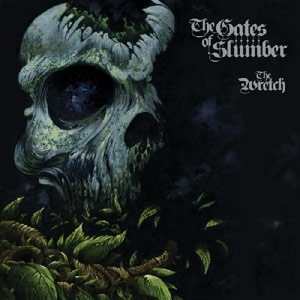
The Wretch
Rise Above/Metal Blade
It’s always nice to see a band from the Midwest make a name for itself in the worldwide metal consciousness, and Indiana’s the Gates of Slumber should have no problem doing just that with their new album, The Wretch, recently released on British label Rise Above. Rise Above is the perfect home for the Gates as this band specializes in Black Sabbath–influenced doom metal, with songs ranging between a mid-paced groove and a funeral dirge akin to Grief or Cathedral. The Gates of Slumber take a no frills approach to the songs and production on The Wretch, and it works in their favor, as unlike some of their doom metal brethren, the Gates of Slumber do not favor sound over substance. Instead, these are well-written songs that might have fit in well on a heavy metal record from the early or mid-70s. This album may not grab you at first, but ultimately The Wretch is a worthwhile grower.
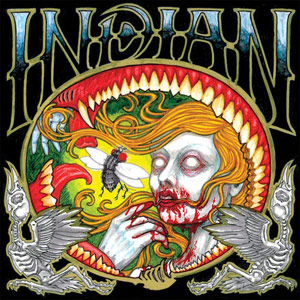
Guiltless
Relapse
If I could sum up Chicago quintet Indian’s new album, Guiltless, in one word, it would be “nasty.” Guiltless comes roaring at you from the get-go, with bludgeoning drums, noisy atmospheric guitars, and snarling vocals. Only occasionally does Indian let up over the course of these 50 minutes. At times the pounding repetitiveness borders upon early Swans territory, but Indian manages to keep their gut-wrenching musical diatribes on the metal side of things. I’m not sure that I even like this album, but that just might be the point.
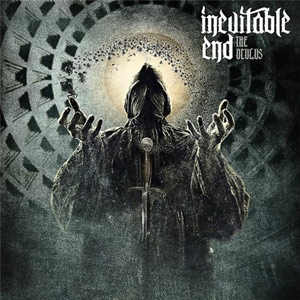
The Oculus
Relapse
Inevitable End is a band from Sweden I’ve been meaning to check out for a while, and finally I have their second full-length in my hands. On The Oculus, Inevitable End earns their reputation for being hard to pin down to any certain style or sub-genre. While some reviews slot Inevitable End as a death metal act, there’s way more going on with The Oculus. Like the newest album by Trap Them, Darker Handcraft, The Oculus is influenced by punk and hardcore, yet still maintains the group’s identity as a metal band. However, The Oculus is even more unhinged and manic than the Trap Them record. Like a soundtrack to someone having a nervous breakdown, Inevitable End’s output is noisy, spastic and explosive, and the band seems hardly able to focus on any one theme or musical motif for more than a minute at a time, which in my book is almost always a good thing. Inevitable End definitely has their own thing going on musically and conceptually and has created one of the most unique and identifiable albums of 2011.
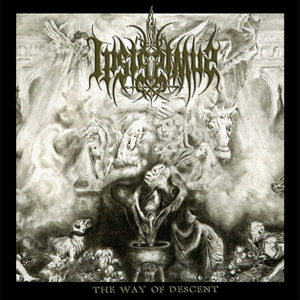
The Way of Descent
Metal Blade
Metal Blade is known for putting out certain types of metal albums, and one style the label rarely deals in is black metal. Apparently, though, Metal Blade feels strongly enough about New Haven, Connecticut trio Ipsissimus to dip into the genre with the band’s debut, The Way of Descent. The band comes storming out of the gate with the first song, “The First Secret of Fatima,” galloping double-bassed blast beats meshing with fast, slashing, razor wire guitar before the scratchy snarl of bassist Tichondrius makes its first appearance. This song sets the template for what’s to come, and Ipsissimus rarely strays from the stripped-down approach. In some ways, this is both a blessing and a curse, as it leaves some songs unmemorable. Taken for what it is, though, The Way of Descent is a quality record that shows a lot of promise for future releases.

Diotima
Profound Lore
Here we go again with yet another supposed “hipster” black metal band from New York. I’m beyond tired of having to deflect such negative preconceptions by elitist metalheads, but in the case of Krallice and their new LP, Diotima, I really wish it wasn’t necessary. This is an epic work that defies preconceptions of origin or intent. This full-length, the second by Krallice, is a whirlwind collection of songs that almost always break the 10-minute mark, yet rarely drag. Diotima rages with fast tremolo-picked melodies, amazing breakdowns and musicianship, and as a combined whole, the record feels like a set of songs that are meant to be heard together as part of a larger musical tapestry. As any good black metal record should, Diotima sucks the listener in with its killer riffing and engrossing vocals (both high end and low end), leaving one with the feeling of having trudged through the windy cold of an arctic snowstorm, that torment and frustration ultimately encapsulated in musical form.
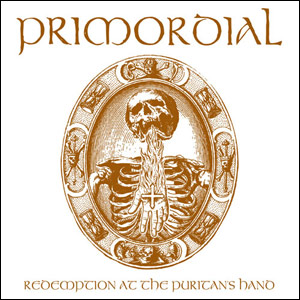
Redemption at the Puritan’s Hand
Metal Blade
It seems like I just reviewed another Primordial album, but according to reports, this is the first album of new material by the band in several years. Having shed nearly all traces of black metal from their sound, Primordial is still a fierce, yet underrated, purveyor of the pagan folk-metal sub-genre, and baring elements of traditional heavy metal, Redemption at the Puritan’s Hand feels a lot more straightahead than some of the previous efforts by the band. However, even when incorporating such elements, they do it in a way that is uniquely Primordial and hardly comparable to any other band, eschewing flashy guitar heroics for melancholic tones that serve as the perfect vehicle for AA Nemtheauga’s plaintive singing. With eight lengthy songs clocking in at more than 60 minutes total, Redemption is a seemingly daunting listen. But like previous Primordial efforts, Redemption eventually reveals itself. When the light bulb finally does go on, you realize what a great album Primordial has unleashed upon an unwitting metal world.
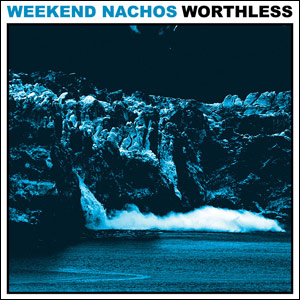
Worthless
Relapse
Before I even began to review this album, I had to figure out if the band’s name was so retarded it was brilliant or if it was just plain dumb. After much deliberation, I’m leaning toward the latter. Still, I’m pleased to report that Weekend Nachos’ newest album, Worthless made a mostly positive impression upon me nevertheless. The band’s style is metallic hardcore with tinges of powerviolence and grindcore performed in a way that is surprisingly streamlined. But Weekend Nachos also add in a few unexpected elements into their musical brew, as the band dares to push the perceived boundaries of their supposed musical stratum. The very last song on the album, “Future,” is not much more than a feedback-drenched, slower-than-snails dirge that keeps managing to spit out another chord or drumbeat despite being seemingly drained of any more music. While Worthless is not a great record by any stretch, Weekend Nachos have definitely got my attention and I’m curious to see what they do next.
Gary Spencer
